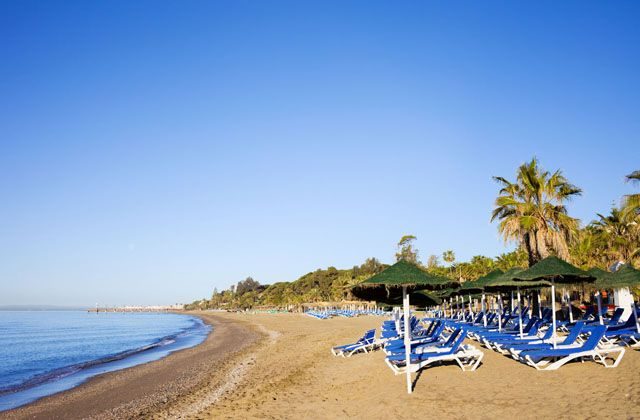- Have any questions?
- +34 951 273 575
- info@allaboutandalucia.com
Should you use overseas mortgage for your overseas property, or a local one?

Saudi tycoon’s HUGE €200 million yacht arrives on Spain’s Costa del Sol
July 3, 2019
Costa del Sol town infuses cleaning water with PERFUME to make streets ‘smell fruity’
July 31, 2019We’ve all had it happen – you go on holiday somewhere, and you fall head over heels in love with the place. Then, one day, you chance upon a real estate office. After perusing listings for a few minutes, you identify at least a half-dozen properties you can easily afford.
The wheels in your head start turning – can I really buy a piece of paradise in Andalusia or anywhere else abroad?
The short answer: yes, you can. In many nations, real estate agencies, including Spain, do brisk business with foreign buyers. The longer answer: yes, but there are laws you need to follow and if you aren’t careful, you’ll pay more than you have to.
Mortgages and money transfer are two areas where foreign real estate buyers unnecessarily waste cash. In this article, we’ll show you how to get the best deal possible when purchasing international real estate.
Interest rates will be different than at home
Interest rates vary widely across the globe. For instance, the purchase of a lake cabin in Finland can be financed at rates as low as 1.46%. On the other hand, those hoping to buy an Argentine ranch with an Andes view may want to sit down – mortgage rates there can be as high as 35.54%. Spain is very cheap for mortgages with an average 2.59% interest rate currently.
How can rates differ so much across the world? In Argentina’s case, the practice of printing money to finance deficit spending has resulted in double-digit inflation. To prevent the economy from lapsing into hyperinflation, the central bank has jacked interest rates to nosebleed levels.
Conversely, Finland boasts a stable, well-capitalized economy. On top of this, Finnish interest rates are among the lowest in the world due to its system of 12-month variable rates. Because these loans aren’t fixed over a 20-year term (or longer), Finns can borrow money for less than elsewhere in Europe.
At home or abroad: where should you get your mortgage?
Shortly after falling in love with a piece of foreign real estate, reality sets in – how are you going to pay for it? It all comes down to the local rate and the terms of the loan – in the case of the Argentine ranch, going through a local bank is a non-starter: as of September 2018, the Argentine central bank set interest rates at 60% – the highest in the world.
This doesn’t mean your dream is dead – instead, you’ll want to arrange a mortgage through your home bank. While you’ll lose some money transferring it down south (more on this later), you’ll still come out ahead considering the vast gulf between Argentine rates and those found in the USA and the UK (4.1% and 3.2% respectively).
In Spain, you’ll want to go with a local bank. In our mind, the cost savings (rates currently average around 1.46%) versus American and UK rates overcome the annual adjustment in mortgage rates and costs associated with transferring money from your home bank.
If rates are similar to home, it depends. If you have the financial resources and tons of patience, you may wish to go local. Otherwise, the familiarity of dealing with banks back home may win out in the end.
How to shop for a mortgage when buying overseas real estate
Before you begin talking to banks, spend an evening researching foreign ownership rules. For instance, in Argentina, there are no restrictions of any kind on foreign ownership of real estate. Finland is mostly the same, except that it restricts purchases in the Åland Islands. In this case, you would need to obtain permission from the government to purchase property in this semi-autonomous Swedish speaking territory.
Your next move: hire a local real estate agent. They may be aware of laws you aren’t, so don’t try to cut corners – it may end up costing you in the end.
Once you have established your legality as a foreign real estate buyer, then seek out a mortgage. Securing financing as a foreigner can be tough, as you may need to take extra steps to prove your creditworthiness.
In the European Union including Spain, banks may request that you purchase a property for 100% of its value upfront. This will give you an asset that can be used as collateral in the real estate purchase you wish to make.
Don’t have the capital to do this? You may be able to refinance a mortgage you already have. Be careful, though – if the economy tanks and you are unable to make payments, you could lose both properties.
If you decide to move forward with a local mortgage, consider the economic climate you are buying into. In countries with high, volatile interest rates (like Mexico), you’ll want to negotiate a fixed rate loan. Over in Finland, going with a variable rate mortgage may be worth it, considering their stable economy and uber low rates.
If you don’t have the appetite for advanced tactics, going with a bank in your country of residence is a better choice. At home, you have an established credit history, which avoids you having to prove your financial integrity.
Research the sites of several lenders, and compare rates and fees. Once you narrow it down, call up their loan officers and compare the terms of various firms. Given the competitive nature of the finance industry, any bank vying for your business will waive or reduce various fees, or offer a better interest rate.
Moving money from your bank can get expensive
If you opt to go with a bank in your home country, you’ll need to transfer money to close the deal. Whatever you do, do NOT set up a wire through your bank. In addition to the high transfer fees they charge, their exchange rate differs considerably from the interbank rate.
As of May 2019, most UK banks charge ~2% rate markup on exchanges between the Sterling and the Euro. The rate is 1.114 (interbank) but you’re likely to get under 11,000 for every 10,000 Pound you transfer abroad. Most money transfer companies not only provide a better price, but a better customer experience. These days, you can arrange a cash transfer from home that charges low/no fees at an exchange rate that is less than 1% off the interbank rate.
Money transfer companies can low ball their competition because they lack the overhead that legacy financial institutions are saddled with. As a result, these firms have grown fast – Moneycorp boasts 100,000+ clients, and it’s not surprising; they deliver fast transfers at much lower costs than the banks, and have local offices in Europe, UK and the USA.
Before you go with your bank out of laziness, check out a few money transfer companies – you’ll be glad you did.
Taking time to do research can save you thousands
Most of us dream about owning a beach house or a mountain chalet. If you’re in a position to make it happen, don’t let your emotions distract you from the details of this business transaction.
Banks, mortgage brokers, and real estate agents want to extract as much cash as they can from you. By reading the fine print, doing your research, and talking to the right people, you can close this deal without being taken to the cleaners.




